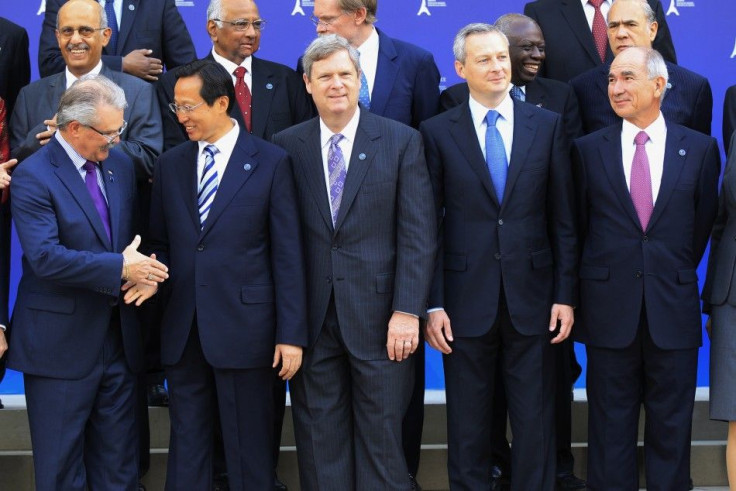G-20's measures to stabilize food prices

A series of measures have been agreed by world economies on Thursday to stabilize world food prices after years of sudden highs and lows in food prices that caused global instability, especially in poorer countries.
A transparent system to track global supplies, emergency food reserves and engagement into more research into new wheat strains and creation of a rapid response mechanism to deal with drought in producer countries, will be established to stabilize the world market, French Agriculture Minister Bruno Le Maire said at the G-20 summit of agriculture ministers, an AP report stated.
It is a tour de force for the international community that lets you still believe in the power of solidarity and working together to address the big questions facing the planet, like the future of world agriculture, he told journalists.
The high rise in food prices in 2008 caused worldwide hardship and even riots in developing countries.
This is the first time agriculture and food security have been made a G20 summit topic, considering the graveness of the matter.
We all recognize the necessity of putting in place on the market of agricultural products new rules and regulations, Le Maire said.
World Bank President Robert Zoellick supporting the new measures said, We are not going to be able to stop food prices from going up and down, but we can smooth out the swings and we can protect the poor whether they are small farmers or consumers.
What we saw when prices started to surge in 2008 was that the lack of information on stocks and availability can lead to panic in markets and panic is what leads to price hikes.Uncertainty leads to volatility, he added.
The spike in food prices that was prompted due to rising energy prices in 2008 had led to widespread unrest in many developing nations.
© Copyright IBTimes 2024. All rights reserved.





















